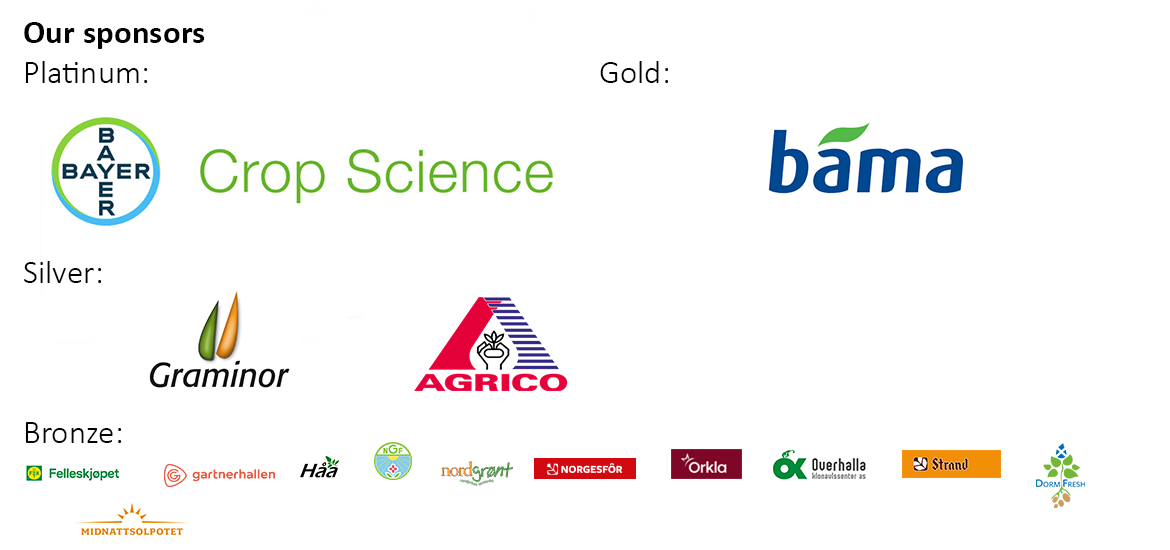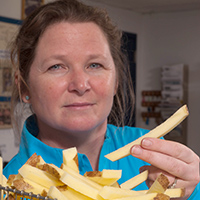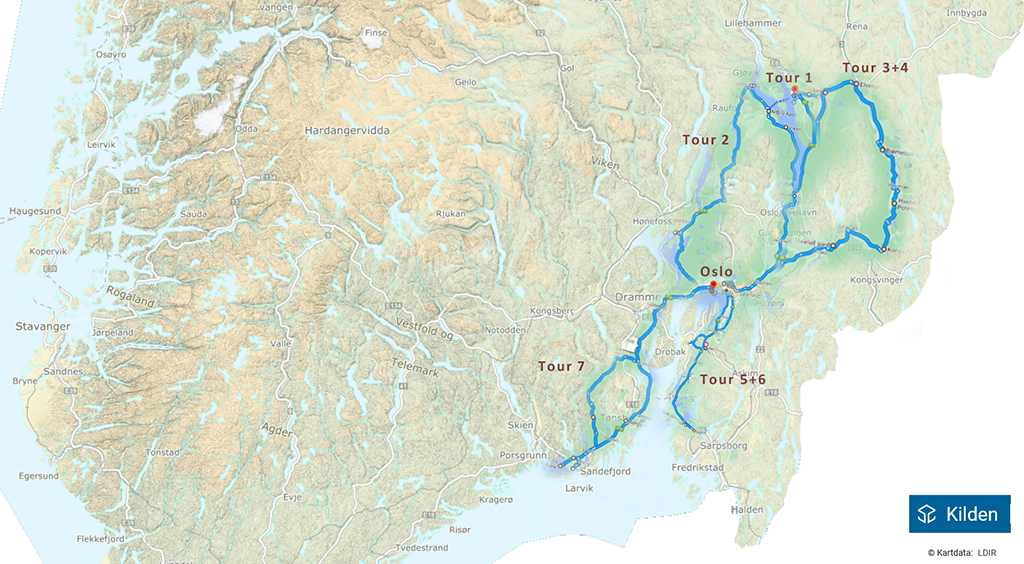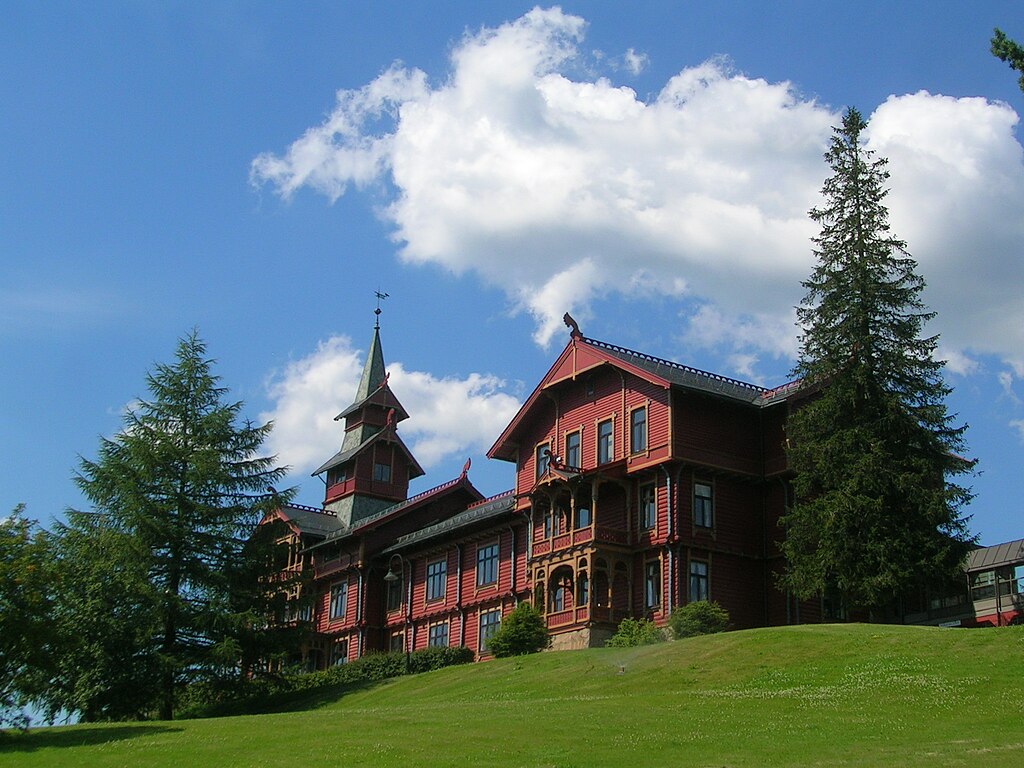Welcome to EAPR2024
Oslo, Norway, July 7-12, 2024
This is the first time Norway will host a Triennial conference of EAPR, the European Association for Potato Research, and the organizing committee is eager to make “the best Triennial conference ever”.
You are all very welcome to Oslo for the EAPR2024 Triennial Conference!
The website https://nibio.no/eapr2024 is open for registration. We have 12 interesting keynotes in the program, other presentations are published shortly.
The headline for this conference is: Sustainable Potato production: advances and applications of Potato Research. We plan for 10 scientific sessions covering a broad specter of subjects related to the potato crop. The scientific committee consists of both Norwegian scientists and experts from other parts of Europe.
We plan one full day of excursions during the conference to visit potato growing areas, including social activities.
We have tried to keep the cost low to attract as many people as possible. The fees are calculated in the Norwegian currency NOK, which now is weak compared to EURO. That means to register now could be wise.
It is also possible to arrange separate workshops or network meeting one or two days before the conference at the conference venue. Please contact me if you are interested to discuss this.
The first connected workshop will be on the day before the EAPR conference, it is the 3rd International Spongospora Workshop, July 6, 2024.
On Sunday, July 7, you may join the 1st European Wireworm workshop.
Please forward the information about the conference within your network.
Arne Hermansen
President of EAPR
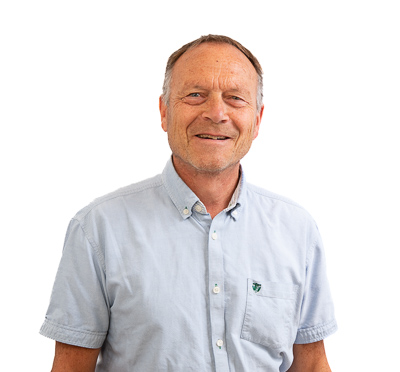 |
More information will apear on this website as the program evolves. I hope to see you in Oslo in July 2024!
Arne Hermansen |
|
Important dates and deadlines |
||
| REGISTRATION / ACCOMMODATION |
Opening |
July 2023 |
|
Early bird rate ending |
7th April 2024 |
|
|
Closing |
3rd May 2024 |
|
|
|
|
|
| ABSTRACTS |
Opening |
July 2023 |
|
Closing, final |
1st March2024 |
|
|
|
||
| STUDENT SUPPORT |
Closing |
15th December 2023 |
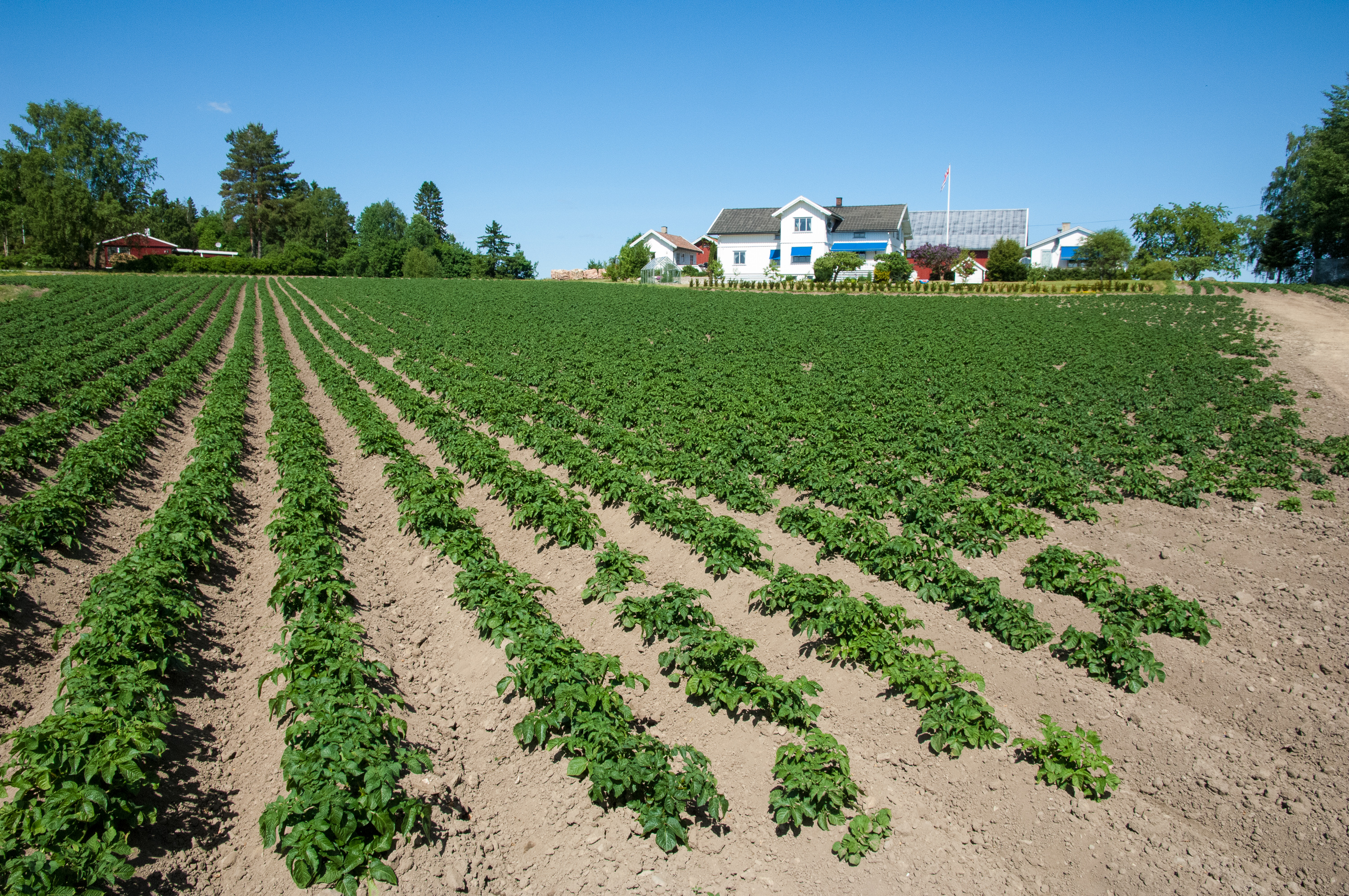
Photo: E. Fløistad, NIBIO

Photo: Fara Mori/Visit Oslo
EAPR 2024 Scientific committee |
Organising committee |
| Muath Alsheikh, Graminor AS, NO | Muath Alsheikh, Graminor AS |
| May Bente Brurberg, NIBIO, NO | Jan Arne Broen, BAMA AS * |
| Domenico Carputo, University of Naples Federico II, IT | May Bente Brurberg, NIBIO |
| Vincent Cesar, CRA-W, BE | Håvard Eikemo, NIBIO |
| Jean-Eric Chauvin, INRAE, FR | Erling Fløistad, NIBIO * |
| Kürt Demeulemeester, Inagro, BE | Borghild Glorvigen, NLR * |
| Laura Grenville-Briggs Didymus, SLU, SE | Solveig Haukeland, NIBIO |
| Håvard Eikemo, NIBIO, NO | Pia Heltoft, NIBIO |
| Adrian Fox, FERA, UK | Arne Hermansen, NIBIO * |
| Idit Ginzberg, ARO, Volcani Center, IL | Kjersti Balke Hveem, NIBIO |
| Borghild Glorvigen, NLR, NO | Solveig Haugan Jonsen, Findus Norge AS |
| Jean Pierre Goffart, CRA-W, BE | Anne-Helen Kalhovd, Maarud AS |
| Thilo Hammann, Julius Kühn-Institut, DE | Eldrid Lein Molteberg, NIBIO * |
| Solveig Haukeland, NIBIO, NO | Kari Munthe, NIBIO * |
| Kjersti Balke Hveem, NIBIO, NO | Ragnhild Nærstad , Syngenta |
| Erik Joner, NIBIO, NO | Simeon Rossmann, NIBIO |
| John Jones, James Hutton, UK | Till Seehusen, NIBIO |
| Corne Kempenaar, WUR, NL | Annette Folkedal Schjøll, NIBIO |
| Jan Kreuze, CIP, PE | Carl Spetz , NIBIO |
| Alison Lees, James Hutton Institute, UK | Kristin Sørensen, NLR |
| Michel Martin, ARVALIS, FR | Kirsten Tørresen, NIBIO |
| Andreas Meyer, Dethlingen Versuchsstation, DE | |
| Eldrid Lein Molteberg, NIBIO, NO | * Executive committee |
| Mariëlle Muskens, Agrico Research, NL | |
| Zsolt Polgar, Hungarian University of Agriculture and Life Sciences, HU | Others in tech. staff: |
| Simeon Rossmann, NIBIO, NO | Ellen Schei Pongo, NIBIO |
| Annette Folkedal Schjøll, NIBIO, NO | Cathrine Lill Broch, NIBIO |
| Till Seehusen, NIBIO, NO | |
| Carl Spetz, NIBIO, NO | |
| Paul Struik, WUR, NL | |
| Pia Heltoft Thomsen, NIBIO, NO | |
| Ian Toth, James Hutton Institute, UK | |
| Kirsten Semb Tørresen, NIBIO, NO | |
What is included in the participant fee?
|
Participants and fees |
Get together Sunday evening |
Lunch and coffebreaks Monday, Tuesday, Thursday, Friday |
Reception Monday evening |
Conference material |
Excursion |
Conference dinner Thursday evening |
|
EAPR/PAA-member |
X |
X |
X |
X |
Not included |
Not included |
|
Regular NOK 9000,-
|
X |
X |
X |
X |
Not included |
Not included |
|
Student |
X |
X |
X |
X |
Not included |
Not included |
|
Keynote speaker |
X |
X |
X |
X |
Not included |
Not included |
|
Participant one day |
(x) |
(x) |
(x) |
X |
Not included |
Not included |
|
Accompanying person |
X |
|
X |
|
Not included |
Not included |
(x) Included the day of participation
(xx) Excursion Wednesday NOK 1000,-
(xxx) Conference dinner Thursday evening NOK 1500,-
If it is not possible to pay by card, please contact us by email: eapr2024@nibio.no
Information
Program
EAPR 2024 - Sustainable potato production
Advances and Applications of Potato Research
- Preliminary program
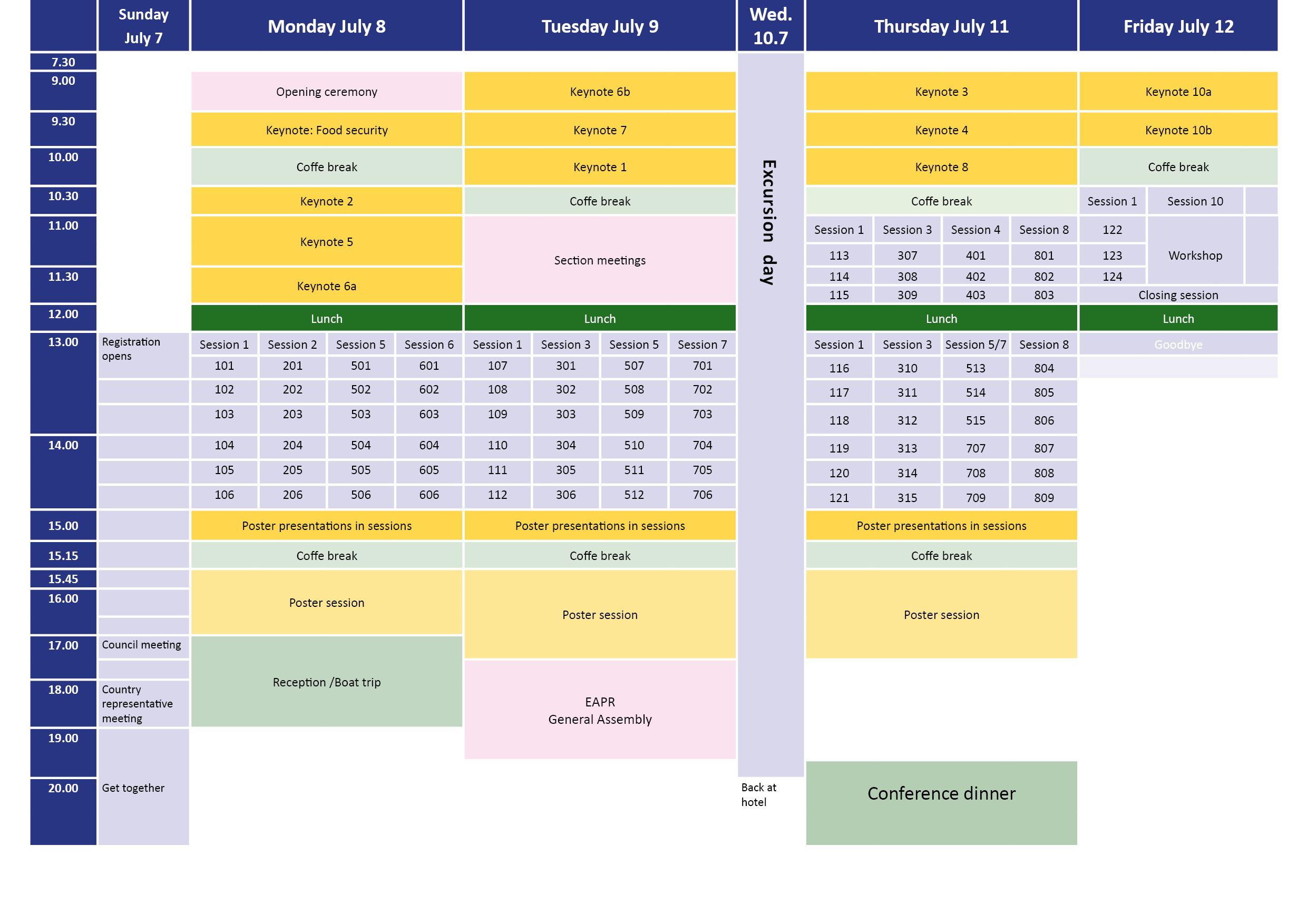
Scientific sessions will contain both oral and poster presentations.
The program will be organised in the following sessions.
Keynotes with preliminary titles are listed and sub topics indicated:
-
Keynote
Food security
Keynote: Potato: the smart crop for food security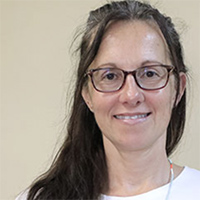
Dr
Monica ParkerInternational Potato Center,
Vancouver, CanadaDr. Parker is passionate about delivering science to realise the impacts potato can have. She has supported potato sector development through partnerships with governments, and public and private, community and farmer institutions in more than 10 countries throughout Africa and the Middle East.
Key topics in the session:
- Food waste
- Consumer trends
- Health effects
- Food security
-
Session 1
Breeding robust cultivars
Keynote: Renseq: a fast-track method for development of potato pests and disease resistance markers from genome sequences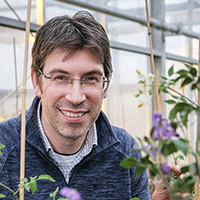
Dr
Ingo HeinThe James Hutton Institute
and the University of DundeeOur research bridges potato genetics and pathology, partnering with industry to enhance crop protection against biotic threats. We leverage RenSeq for resistance exploration in wild germplasm collections, cultivar association genetics, and marker development for breeding.
Key topics in the session:
- Genetics & genetic resources
- New techniques & hybrid breeding (crispr, cis/trans mm.)
- Resistance breeding
Session 1 oral presentations
Monday July 8:
101
The role of Yip1 proteins in membrane trafficking and potatoes’ resistance to stress
Zainab M. Almutairi, Prince Sattam bin Abdulaziz University, Saudi Arabia102
Phenotypic and genotypic screening for nitrogen and phosphorus efficiencies in potato (Solanum tuberosum L.) genetic resources
Klaus J. Dehmer, Leibniz Institute of Plant Genetics and Crop Plant Research (IPK), Germany103
Innovative potato breeding through fixation and restitution – the happy medium between conventional tetraploid and diploid F1 hybrid breeding
Corentin Clot, Plant Breeding, Wageningen University & Research, The Netherlands104
Development of new potato varieties for north of Norway
Hans Arne Krogsti, Graminor AS, Norway105
Transcriptomic dynamics and biochemical insights into anthocyanin-enhanced tolerance to Rhizoctonia solani in potato
Vincenzo D’Amelia, CNR, Institute of Biosciences and Bioresources, Portici, Italy106
Predictability of breeding further improved by doubled haploid technology
Wessel Holtman, Fytagoras, The Netherlands
Tuesday July 9:107
Identifying potato cyst nematode resistance gene, Gpa5, with SMRT-AgRenSeq-d
Yuhan Wang, The University of Dundee, United Kingdom108
Diversity analysis of Rpi genes in potato
Paulina Paluchowska, Plant Breeding and Acclimatization Intitute - National Research Institute, Poland109
Metabolite diversification and fate of bioactive metabolites in backcrossing lines of wild and cultivated potato for resistance breeding
Karin Gorzolka, Julius Kuehn Institute, Federal Research Centre for Cultivated Plants, Germany110
Fusarium dry rot control through host encoded broad spectrum resistance in potato
Daniel Monino Lopez, Wageningen University & Research, Wageningen, The Netherlands111
RNAseq expression analysis of potato tubers differing in resistance to soft rot caused by bacteria Dickeya solani
Renata Lebecka, IHAR-PIB, Department of Potato Genetics and Parental Lines, Młochów, Poland112
ScabEomics: Spongospora subterranea effectoromics for resistance breeding to powdery scab in potato
Maria de la O Leyva-Pérez, Crop Science Department, Teagasc, IrelandThursday July 11:
113
Salicylic-acid mediated defence against the powdery scab disease
Samodya Jayasinghe, Washington State University, USA114
Engineering of transgene-free potato late blight resistant plants through base editing
Jack Vossen, Plant Breeding, Wageningen University and Research, Wageningen, The Netherlands115
Field trials in Sweden of potato with changed expression of resistance and susceptibility genes
Erik Andreasson, Swedish University of Agricultural Sciences, Alnarp, Sweden116
Genomic prediction in potato breeding: status and outlook from the Nordic region of Europe
Rodomiro Ortiz, SLU, Sweden117
Towards selection of more durable resistance to Globodera pallida
Julien Leuenberger, IGEPP, INRAE, France118
Marker type and density in tetraploid potato genomic prediction and GWAS – does it matter?
Trine Aalborg, Aalborg University, Denmark119
Producing a potato pan-NLRome
Thomas Adams, Department of Cell and Molecular Sciences, James Hutton Institute, United Kingdom120
Genomic selection for late blight resistance in tetraploid potato: preliminary results and impact of the minor allele frequency on predictions
Charlotte Prodhomme, inov3PT, Paris and IGEPP, INRAE, Institut Agro, Univ Rennes, France121
Targeted genotyping-by-sequencing of potato
Jeffrey Endelman, Dept. Plant & Agroecosystem Sciences, University of Wisconsin-Madison, USAFriday July 12:
122
Comparing yield stability of tetraploid and diploid potato
Mariëlle Muskens, Agrico Research, Bant, The Netherlands123
TBD
124
SNP-based assessment of unique and duplicated accessions in genetic resources of Nordic potatoes
Morten Rasmussen, NIBIO, Norway -
Session 2
Improved potato health
Keynote: Insects as vectors of pathogens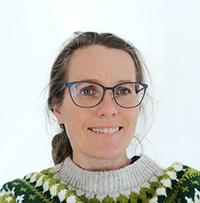
Professor
May Bente BrurbergNIBIO and
Norwegian University
of Life Sciences (NMBU)PhD from the Agricultural University of Norway (1994). Involved in numerous projects on different microbial pathogens and pests, both of applied and basic character, including topics such as pathogen biology, host‐pathogen-vector interactions as well as detection and diagnosis of pathogens.
Key topics in the session:
- Viral diseases
- Bacterial diseases
- Certified seed
Session 2 oral presentations on Monday July 8:
201
Aggressiveness and behavior of different pectinolytic bacteria species involved in potato blackleg disease
Jérémy Cigna, FN3PT-inov3PT, Paris and CNRS-I2BC, France202
A microscopic examination of potato root infection by Pectobacterium atrosepticum
Ian Toth, James Hutton Institute, Cell and Molecular Science, Dundee, United Kingdom203
Bacterial wilt of potato: a threat to food security in sub-saharan Africa
Kalpana Sharma, International Potato Center, Nairobi, Kenya204
Pepper ringspot virus (PepRSV), the latest threat to the South African potato industry
Lindy Esterhuizen, Agricultural Research Council –Plant Health and Protection, Pretoria, South Africa205
Losses from seedborne Potato Virus Y infection dependent on strain and variety
Mark Pavek, Washington State University, Dept. of Horticulture, Pullman, USA206
Operator influence on roguing efficacy for controlling potato virus Y (PVY) in seed potato fields
Brice Dupuis, Agroscope, Plant Production Systems, Nyon, Switzerland -
Session 3
Integrated pest management
Keynote: Prevention and control of late blight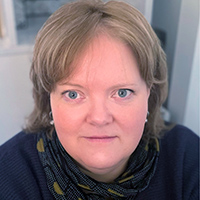
Dr
Alison LeesThe James Hutton
Institute, Dundee, UKAlison Lees is a senior potato pathologist at The James Hutton Institute. Her research focuses on the epidemiology, detection and integrated management of potato diseases including late blight and soil-borne diseases. Alison is a coordinator of Euroblight ‘A Late-Blight Network for Europe’ and the current chair of the EAPR Pathology and Pests Section.
Key topics in the session:
- Late blight
- Fungal diseases
- Insects
- Weeds
- Disease control strategies (IPM)
- Low risk pesticides, biostimulants, endophytes
Oral presentations in session 3
Tuesday July 9:
301
Adoption of an early warning system for the integrated management of potato late blight in Chile
Ivette Acuna, National Research Institute, INIA, Chile302
Creating a synergy between farmers, gardeners, and other stakeholders to eradicate late blight primary inoculum and adopt IPM control strategies
Pierre Deroo, ARVALIS - Villers-Saint-Christophe, France303
Aggressiveness of Phytophthora infestans isolates from four genotypes widespread in Europe
Mirella Ludwiczewska, Plant Breeding and Acclimatization Institute - National Research Institute, Poland304
Rating potato varieties: 30 years of experiments reanalyzed to explicit resistance and explain its variability
Delphine Chauvin, Arvalis and INRAE, France305
Global solutions for sustainable late blight management: Evaluating the success of 3 R-gene potatoes in Asia and Africa.
Phillip S. Wharton, University of Idaho, Aberdeen R&E Center, USA306
New mutations in Alternaria solani affect disease management using SDHI / FRAC group 7 fungicides
Julie S. Pasche, Department of Plant Pathology; North Dakota State University, Fargo, USAThursday July 11
307
Investigating the causal organisms involved with potato early dying in South Africa
Rene Sutherland, Agricultural Research Council, Vegetable, Industrial and Medicinal Plants, South Africa308
Patat’Up: towards the production of a low-input potato
Vincent Berthet , Walloon Potato Sector Representant, FIWAP, Gembloux, Belgium309
Benefits of click beetle monitoring for wireworm control
Katharina Wechselberge, Austrian Agency for Health and Food Safety Ltd. and University of Vienna, Austria310
The good, the bad and the ugly: wireworm pests and the cover crops conundrum in potato production
Bruno Ngala, Rue des Champs Potez, 62217 Achicourt, France311
Extension education on herbicide injury in potato
Andrew Robinson, North Dakota State University/University of Minnesota, USA312
Streptomyces secondary metabolite effects on Pythium, Colletotrichum and Helminthosporium
Brad Geary, Brigham Young University, Dept. of Plant and Wildlife Sciences, Provo, Utah, USA313
Variety screening for tolerance against Candidatus Phytoplasma solani and Candidatus Arsenophonus phytopathogenicus
Benjamin Klauk, University of Applied Science Bingen, Germany314
Using machine learning as a predictive tool to improve potato black dot management
Marta Sanzo-Miro, Plant Science Laboratory, Cranfield University, Bedfordshire, UK315
Effect of mulch cover on wilt symptoms and rubber tubers caused by Candidatus Phytoplasma solani and Candidatus Arsenophonus phytopathogenicus
Benson Kisinga, University of Applied Science, Bingen, Germany -
Session 4
Improved soil health
Keynote: Perspectives of biocontrol of soil borne pathogens and their microbiome interactions in potato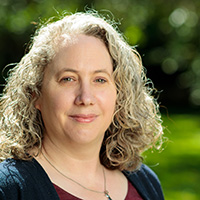
Professor
Laura Grenville-Briggs DidymusDepartment of Plant Protection Biology,
SLU, the Swedish University of Agricultural Sciences, Alnarp, SwedenLeader of the Integrated Plant Protection Unit and the Plant Pathology Lab. My own research group focuses on the molecular and genetic determinants of disease in oomycete and fungal plant pathogens in combination with molecular analysis of interactions between microbial biocontrol agents and their prey along with the soil rhizosphere microbiome communities. We combine these mechanistic studies with applied research, testing combinations of biocontrol agents, plant probiotics and plant resistance inducers and disease modeling strategies, for effective disease control.
Key topics in the session:
- Chemical and physical factors
- Biochar
- Nematodes
- Other soilborne organisms
- Phytobiome
Oral presentations in session 4, on Thursday July 11
401
Geconem: How to collectively manage genetic resistance to potato cyst nematodes?
Marie-Claire Kerlan, 1IGEPP, INRAE, Institut Agro, Univ Rennes, Ploudaniel, France402
Effects of organic amendments and cover crops on soil characteristics and potato yields
Tatiana Francischinelli Rittl, NORSØK, Norway403
Comparing the effectiveness of real-time PCRs to simultaneously detect and identify viable Globodera pallida and G. rostochiensis
Debastiaan van Kessel, Dutch General Inspection Service for Agricultural Seeds and Seed Potatoes, Emmeloord, the Netherlands -
Session 5
Agronomy and tuber physiology
Keynote: New insight in seed tuber physiology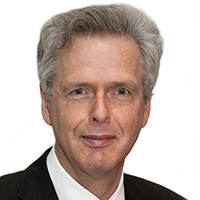
Professor Dr Ir
Paul Struik,Centre for Crop Systems Analysis, Department of Plant Sciences, Wageningen University and Research, The Netherlands
Paul Struik is Emeritus Professor of Crop Physiology. He conducted research on physiology of tuber crops and their seed systems, and (co-)authored over 600 journal articles. He supervised more than 125 PhD students. He is Editor-in-Chief of Potato Research and editor of four other crop journals.
Key topics in the session:
- Seed physiology
- Growing technique
- Desiccation
- Irrigation
Oral presentations in session 5
Monday July 8: 501
Is plant maturity a reliable indicator of bruise susceptibility?
Michael Thornton, University of Idaho, Department of Plant Sciences, Parma, USA502
Environmentally triggered russeting – an overview
Idit Ginzberg, Institute of Plant Sciences, Agricultural Research Organization, Volcani Institute, Israel503
Quantifying differences in source-sink relations between hybrid potato plants grown from two types of propagules
Jiahui Gu, Centre for Crop Systems Analysis, Wageningen University & Research, The Netherlands504
Agronomy of field transplanted hybrid potato crops
Olivia Kacheyo, Wageningen University and Research, The Netherlands505
Promoting international collaboration in potato breeding to transfer frost tolerance from wild species Solanum commersonii into native potato cultivars from the Andean region and the Altiplano
Alfonso H. del Rio, USDA/ARS Potato Genebank, Sturgeon Bay, WI, USA506
Revolutionizing Seed Potato Production System in Africa and Asia
Kalpana Sharma, International Potato Center, Nairobi, KenyaTuesday July 9: 507
Effect of reduced N-fertilization on nitrogen use efficiency and selected quality parameters in starch potatoes and outlook on the POTENZION project
Marcel Naumann, University of Goettingen, Department of Crop Sciences, Plant Nutrition and Crop Physiology, Germany508
Impact of in-row nitrogen fertilization on potato crop
Kürt Demeulemeester, Inagro, Department Arable Crops, Rumbeke-Beitem, Belgium509
Assessing the relationship between nitrogen use efficiency and proteins concentration in potato genotypes
Ilze Dimante, AREI, Crop Research Department, Priekuļi, Latvia510
Assessing regional potato yield response to phosphorus fertilization in high-phosphorus legacy soils
Lincoln Zotarelli, University of Florida, Horticultural Sciences Department, Gainesville, FL, USA511
Alternative herbicides for desiccation of potatoes in Norway
Kirsten S. Tørresen, NIBIO, Norway512
Test of alternatives to diquat in desiccation of potatoes
Lars Bødker SEGES Innovation P/S, Aarhus, DenmarkThursday July 11: 513
The influence of late season evapotranspiration replacement rate on potato yield, quality, and economic return
Jacob Paul Meeuwsen, Washington State University, Department of Horticulture, Pullman Washington, USA514
Potato cultivation without tillage using straw mulch for sustainable agricultural intensification in Asian rice-based systems
Jan Kreuze, International Potato Center (CIP), Lima, Peru515
Effects of soil salinity and drought on potato production
Ke Shan, Wageningen University & Research, The Netherlands -
Session 6
Precision technology in potato cultivation
Keynote: Towards data-driven precision crop management of potato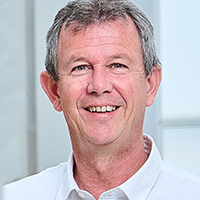
Dr Ir
Corné KempenaarWageningen University & Reserach, dept. Agro Systems Reserach, The Netherlands
WU graduate in plant sciences with a PhD on biological weed control, more than 30 years as agronomist in applied research projects of WPR, including decision support models for crop protection, weed control and precision farming. In recent years, the focus shifts more and more to data-driven farming, working e.g. with the WUR data platform www.farmmaps.net. Besides researcher at WPR, he is associate professor at Aeres University of Applied Sciences on precision farming and board member of Dutch pesticide registration authority CTGB.
Keynote: Next generation of more efficient fertilizers
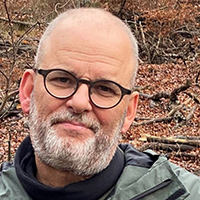
Professor
Søren HustedDepartment of Plant and Environmental Sciences, University of Copenhagen, Denmark
My research is mainly focused on the mineral nutrition of plants, working across the full spectrum from fundamental studies dealing with regulating of uptake, translocation and assimilation of mineral ions to more applied aspects of field based fertilization. Currently we have a strong focus on studying the mechanisms controlling uptake of plant nutrients across the leaf surface barrier in order to improve the basis for foliar fertilization. To create a future population of more efficient fertilizers, we have integrated nanotechnology in our work and recently we have documented that foliar fertilization of potato and barley can be significantly improved using a nano-fertilization.
Key topics in the session:
- Variable rate applications
- Remote sensing
- Engineering
- DSS
Oral presentations in session 6 on Monday July 8:
601
Risk maps in VIPS deliver late blight warnings at high spatial resolution
Berit Nordskog, NIBIO, Norway602
Potassium management strategy in starch potatoes
Lars Bødker, SEGES Innovation P/S, Aarhus, Denmark603
Using drone-retrieved multispectral data for phenomic selection in potato breeding
Alessio Maggiorelli, Institute for Quantitiative Genetics and Genomics of Plants, HHU, Düsseldorf Germany604
Screening a breeding program for nitrogen use efficiency using drone imagery
Laura M. Shannon, Department of Horticultural Science, University of Minnesota, USA605
In-season potato crop nitrogen status assessment from satellite and meteorological data
Dimitri Goffart, Walloon Agricultural Research Center (CRA-W), Gembloux, Belgium606
Combining remote sensing and crop growth model for better decision support on water and nitrogen management in potato crops
Fedde D. Sijbrandij, Wageningen Plant Research, The Netherlands -
Session 7
Sustainability in a changing climate
Keynote: The impact of climatic change on potato production: a focus on water managementKey topics in the session:
- Drought & heat resistance
- Potato – a sustainable crop – carbon inventory
- Production systems (Integrated, organic, regenerative)
Oral presentations in session 7
Tuesday July 9: 701
Unravelling the molecular mechanisms of heat-induced decrease in starch content in potato tubers
Sophia Sonnewald, Friedrich-Alexander-Universität Erlangen-Nürnberg, Germany702
Characterizing the Stsp5g a Stsp5g b double mutant as a partial remedy for heat stress
Akiva Shalit-Kanehx, ARO, Department of Vegetables and Field Crops, Gilat, Israel703
Efforts to model crop response to hot and dry environments
Jian Liu, Wageningen University and Research, The Netherlands704
Effects of climate change on late blight and early blight of potato
Roman Valade, ARVALIS, Boigneville, France705
Comparison of the carbon footprint of potato cultivation and processing with other crops and products: What contribution can the potato make to sustainable production?
Marcel Naumann, University of Goettingen, Germany706
Investigations on nitrogen efficiency and nitrous oxide emissions under reduced N-fertilisation in starch potato cultivation in northern Germany
Hubertus Blanke, Georg-August-Universität Göttingen, GermanyThursday July 11:
707
Can drought tolerant potato genotyped be selected based on phenotypic traits?
Karin I Køhl, Max Planck-Institute of Molecular Plant Physiology, Germany708
Does glasshouse trials enable to estimate drought resistance in the field?
Maverick Gouerou, UMR IGEPP, INRAE, France and Agroscope, Switzerland709
Predicting the tolerance of potato genotypes to drought stress based on the root/shoot relationship in the initial period of plant development
Dominika Boguszewska-Mańkowska, Plant Breeding and Acclimatization Institute- National Research Institute in Radzików Division, Jadwisin, Poland -
Session 8
Post harvest
Keynote: Preserving potato qualities in stores in a future with increasing constraintsKey topics in the session:
- Storage technology
- Processing
- Tuber quality
Oral presentations in session 8 on Thursday July 11:
801
Towards smart potato storage: using CFD modeling and simulation to realize optimized and efficient ventilation within potato storage buildings
Petro Demissie Tegenaw, ILVO, Instituut voor Landbouw-, Visserij- en Voedingonderzoek, Voeding Technologie, Merelbeke, Belgium802
Developing automatic tools in the assessment of potato qualities
Fadi El Hage, ARVALIS – Institut du Végétal, Pôle Stockage et Valorisation de la Pomme de terre, France803
Effect of water stress in potato crop on post-harvest sprouting
Margot Visse-Mansiaux, Agroscope, Swiss Confederation’s center for agricultural research, Switzerland804
OptiGERM : a French online Decision Support System to help the industry on tuber sprout control management in stores
Michel Martin, ARVALIS-Institut du végétal, Saint Christophe, France805
Sprout inhibitors combination for a better efficacy and rates modulations
Morgane Flesch, ARVALIS, Villers-Saint-Christophe, France806
1,4-Dimethylnaphthalene performance in temperature-controlled shipping containers
Henning Bergmann, DormFresh Ltd. Perth, UK807
Transcriptomic changes induced by DMN exposure in dormant tubers of three potato cultivars
Emily P. Dobry, College of Agricultural Science, Pennsylvania State University, USA808
Greening of potato tubers in grocery stores can be reduced by appropriate storage and packaging
Hanne Larsen, Nofima, Norway809
Glycoalkaloids in processing potatoes and fried potato products: formation and stability
Christina Meyeers, Max-Rubner Institute, Germany -
Session 10
Connecting research to practice
Keynote: Success factors for transferring knowledge from science to growers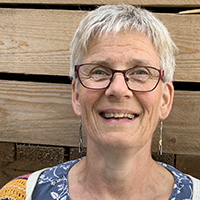
Potato coordinator
Borghild GlorvigenNorwegian Agricultural Advisory Service |
Norwegian Potato ForumBackground in agronomy and plant protection. She has a dr. scient in storage diseases in potatoes. She has been working with plant protection, dissemination of research, as an advisor for potato farmers. She specializes in potato production and is the editor of www.potet.no.
Keynote: Linking science and industry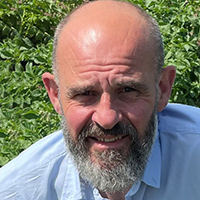
Professor
Ian TothJames Hutton Institute and Visiting Professior at the University of Glasgow, United Kingdom
I am a potato pathologist working on blackleg disease caused by Pectobacterium and Dickeya species. My main interest is to bring together academics and industry to solve real-world problems. I am Director of Scotland’s Plant Health Centre and Director of the National Potato Innovation Centre. Key topics in the session:
- Experiences from different countries
- Workshop:
How can we work together across boarders?
-
Excursions
- 7 different whole day excursions will be offered, all with both professional anc cultural content. Please find the full presentation of the different alternatives here. Please choose your preffered excursion when you register, including our second and third preference. The alternatives are subject to change, depening on demand.
Venue, travel and contact
Venue
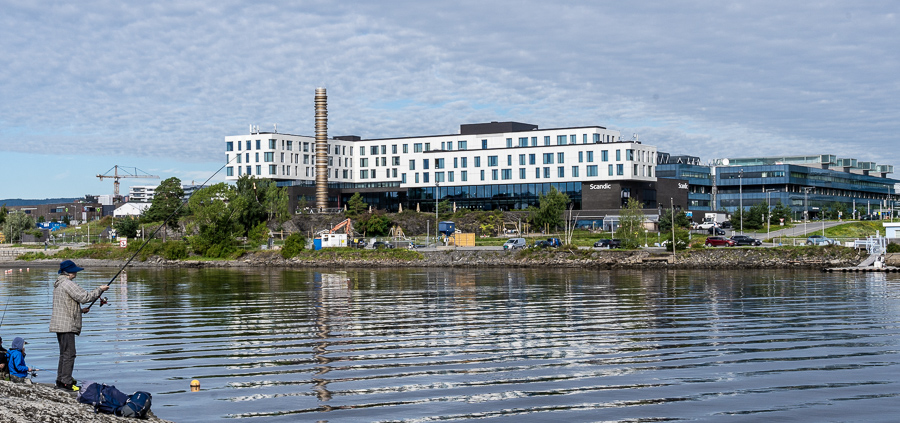
The venue for the conference is Scandic Fornebu Hotel located in Oslo, close to the Oslo fjord. The hotel can accommodate more than 300 participants and has very nice facilities for the conference. The conference has negotiated a very good price for participants staying in this hotel. Our conference will benefit, both professionally and socially, if most of the attendants choose to stay in the same hotel. Hotel booking is part of your registration for the conference. Availability is first come, first serve, do not hesitate!
Travel
The street adress of the hotel is Martin Lingesvei 2, 1364 Fornebu
From Oslo Airport Gardermoen, travel by train to Skøyen train station, and change to bus no. 31 towards Fornebu/Snarøya for 6 stops. Getting off at IT Fornebu, the walking distance to the hotel is 398 m. Your train ticket from the airport to Skøyen is also valid on the bus, cost: 118 NOK.
If you chose a taxi from Skøyen, the price on a sunday afternoon will be aproximately 180 NOK.
Student support
EAPR will financially support 10 PhD students to attend the 22nd Triennial Conference EAPR2024 in Oslo.
The support will reimburse registration fee, travel and accommodation cost. Rules and instructions on how to apply.
Application deadline is 15 December 2023.
Contact
Inquieries regarding the EAPR 2024 conference may be submitted below, or directly to eapr2024@nibio.no
Call for abstracts
General information
- Abstracts may be submitted for oral or poster presentations, in English only, by e-mail to eapr24abst@nibio.no, last call by 1st March 2024.
- Abstract acceptance will normally be decided about 14 days after we have received the abstract.
- Decision regarding oral or poster presentations will be notified by March 2024.
- The scientific program and abstracts will be published online on the Conference and EAPR websites, submission of the abstract constitutes the Authors' consent to such publication.
Abstract submission guidelines
Before submitting your abstract, thank you for paying attention to the following guidelines:
- Your abstract (without the title and the list of authors) must not exceed 2500 characters (including spaces)
- In order to easily prepare the proceedings, we ask you to prepare your text in Times New Roman, size 12, single spaced.
- Download the abstract template and fill inn the fields (if you intend to submit two abstracts, please make two files).
- Save the abstract template as a Word file (.doc or .docx)
- Rename the file(s) inserting your last name and the number 1 and 2 (for a second abstract) (i.e Smith1_EAPR2024_abstract.doc and Smith2_EAPR2024_abstract.doc)
- Fill out the session number (1-10) from the Program, where you suggest your abstract belongs.
- Send your abstract attached to an e-mail to: eapr24abst@nibio.no, indicate in the email if you prefer to give an oral or poster presentation.


